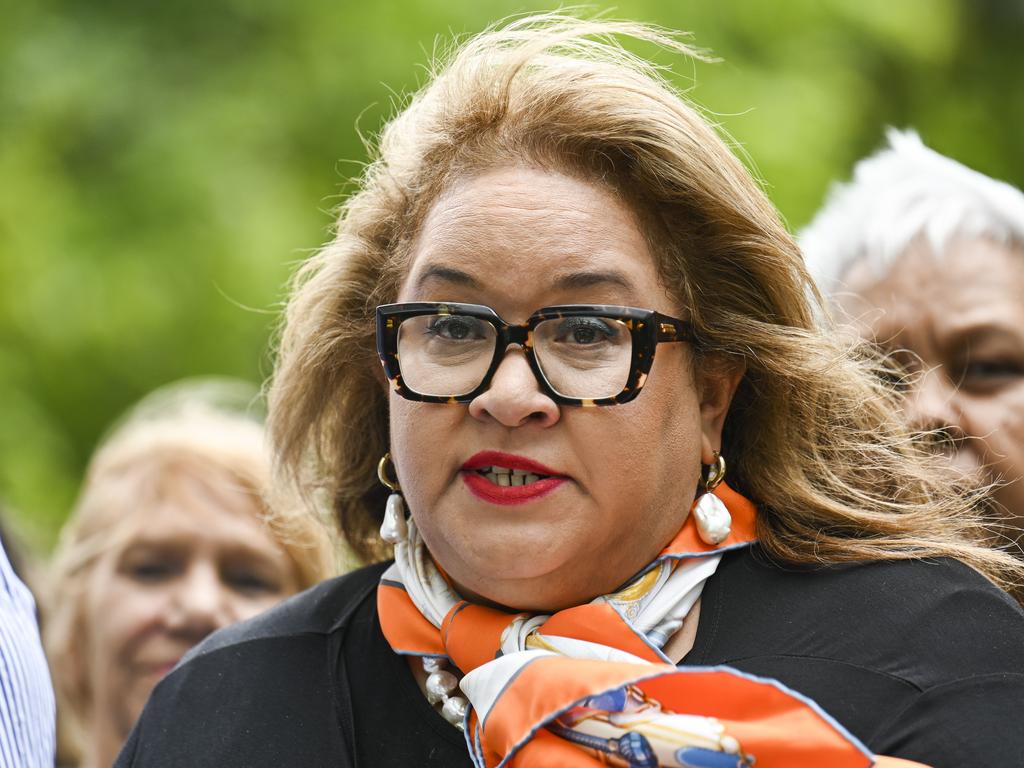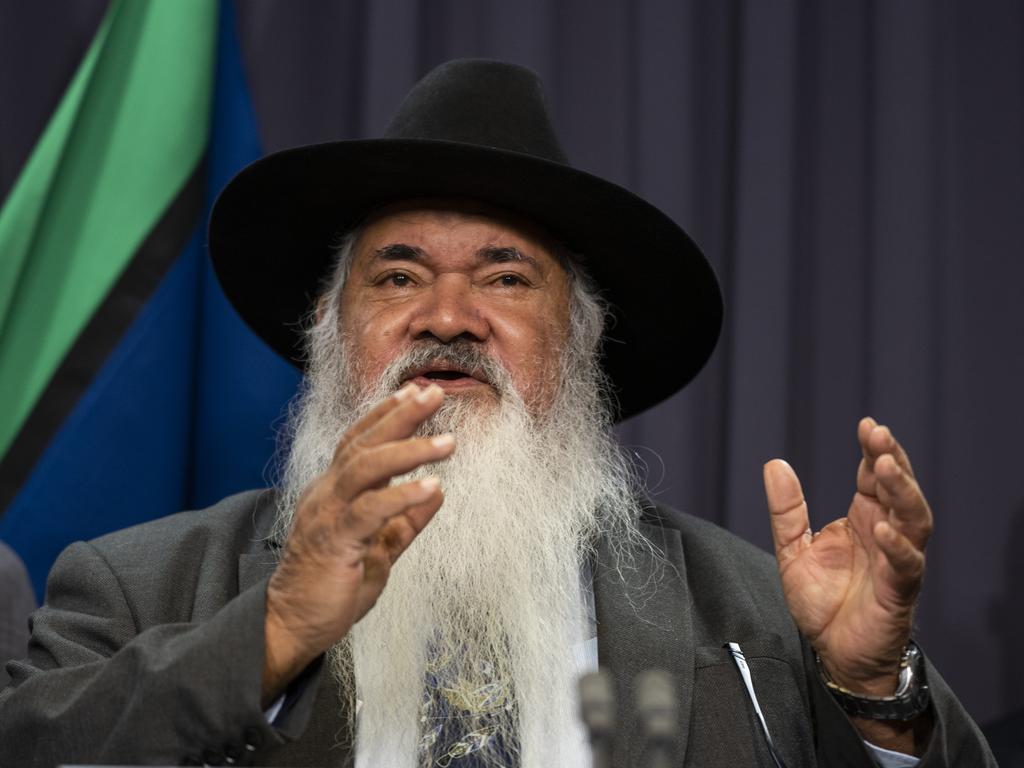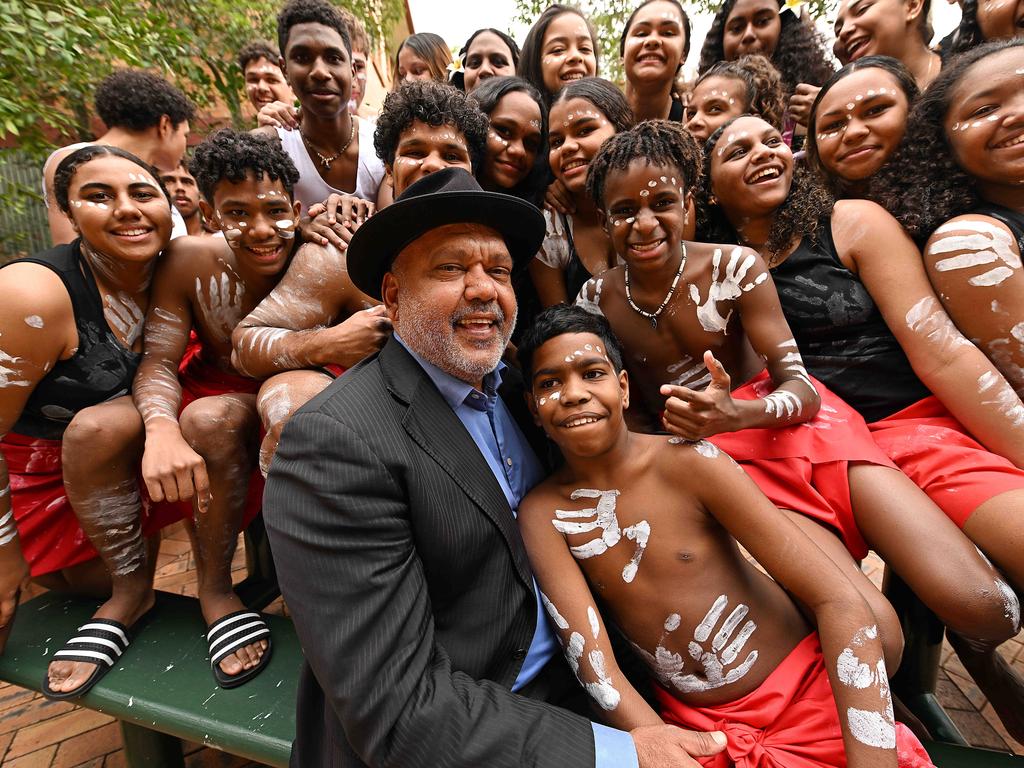Indigenous voice to parliament only works if it’s free to choose what to talk about
The Indigenous voice to parliament will be able to speak to the cabinet, ministers, public servants and the Reserve Bank. This isn’t to be feared.
We need Indigenous voice to parliament to speak on a broad range of matters. That is the point.
This week we saw the introduction of the constitutional amendment to establish the Aboriginal and Torres Strait Islander voice. We also saw the debate on the place that it will take in our constitutional system shift to the question of when the voice will speak, and to whom.
Will it speak to the government and the parliament as they develop climate policy and laws? Will it speak to the Reserve Bank on the setting of interest rates?
There is a clear answer to these questions, and not one we should shy away from because the scope of the voice is its strength.
The government, in the Explanatory Memorandum to the Constitutional Amendment Bill introduced on Thursday, certainly doesn’t.
The proposed constitutional amendment says the voice may make representations on “matters relating to Aboriginal and Torres Strait Islander peoples”. This is a broad remit: while there must be a connection, it is not limited to matters specifically or directly related to Aboriginal and Torres Strait Islander peoples.
The voice will be able to speak to all parts of the government, including the cabinet, ministers, public servants, and independent statutory offices and agencies – such as the Reserve Bank, as well as a wide array of other agencies including, to name a few, Centrelink, the Great Barrier Marine Park Authority and the Ombudsman – on matters relating to Aboriginal and Torres Strait Islander people. This isn’t to be feared: as the Explanatory Memorandum says, the parliament will be able to set the procedure through which the voice’s representations are received, with the important caveat that the parliament won’t be able to stop the voice making those representations. It can’t shut the voice up.
It’s important that the voice speaks not just on matters that directly, or explicitly, affect Aboriginal and Torres Strait Islander people, but on matters that have an indirect but significant effect on them, so as to bring about the necessary connection.
This would include environmental and climate policies and laws, which, given First Nations’ connection to land and waters, have a particular significance for them. It would include matters relating to the conduct of elections, given the under-enrolment of First Nations people in our electoral system. It would include criminal matters, given the over-representation of First Nations in our criminal justice system.
The number of matters the voice could speak on cannot be listed once and for all. That’s because the world shifts and changes, and matters that might not be thought to be of particular concern to Aboriginal and Torres Strait Islander people today, might, because of shifting circumstances that can’t be immediately predicted, become a matter of relevance and importance in the future. Think of how Covid-19 changed the world as we knew it.
The Explanatory Memorandum states that the drafting of the scope of the power is intended to allow this “evolution”.
Further, it would be foolish to think that we can even predict all of the matters that Aboriginal and Torres Strait Islander people think are of concern at this moment. That’s the whole point of the voice: it will allow the concerns of Aboriginal and Torres Strait Islander people, who have previously been voiceless, to themselves tell the government and the parliament which issues or matters are of concern to them. A self-determined scope is part of giving voice to the voiceless.
It is intentional and important the voice speaks on these matters because, as the amendment’s Explanatory Memorandum itself states, the purpose of the voice is to “improve Aboriginal and Torres Strait Islander peoples’ participation in and input into the decisions, policies and laws that affect their rights and interests”, and in this way, improve decisions, policies and programs. This is part of its strength, not something to be shied away from.
A broad scope will also limit the likelihood of constitutional challenges: the wider the power given to the voice, the less likely there will be court cases to determine whether it is acting “in scope”. So a broad scope will address the concerns of those constitutional conservatives who are worried about litigation and want to see the voice operating in the political, not legal, sphere.
But the voice won’t be speaking on everything. The Explanatory Memorandum states simply that this would be “impractical” and “unrealistic”. In practice, the voice’s mandate to speak is limited and accountable politically in two key ways. The first is that the voice will need to make political judgments as to when and how it will have the most impact. If it chooses to speak on every matter that affects Aboriginal and Torres Strait Islander people, it is likely to have limited political impact. If it speaks on matters that are closely connected to Aboriginal and Torres Strait Islander people, it is more likely to be persuasive with government. If it speaks on more general matters, such as financial policy or defence, its representations will have to be weighed up against a number of other interests and groups, and so it will have less political persuasion. So it will have to spend its political capital wisely.
Second, it will be limited by its accountability back to its constituency: Aboriginal and Torres Strait Islander people. The Explanatory Memorandum itself states: “It will be for the Aboriginal and Torres Strait Islander voice to determine the matters relating to Aboriginal or Torres Strait Islander peoples on which it will make representations, by reference to the priorities of Aboriginal and Torres Strait Islander communities.” That is, it is for First Nations to themselves judge whether the voice is choosing to engage with the government and parliament on the most pressing issues to them, and how effective it is in its political judgments.
Professor Megan Davis is a Cobble Cobble woman from the Barunggam Nation and the Balnaves chair in constitutional law, UNSW Law. Professor Gabrielle Appleby is a constitutional lawyer, UNSW Law advising the Uluru Dialogue.





To join the conversation, please log in. Don't have an account? Register
Join the conversation, you are commenting as Logout